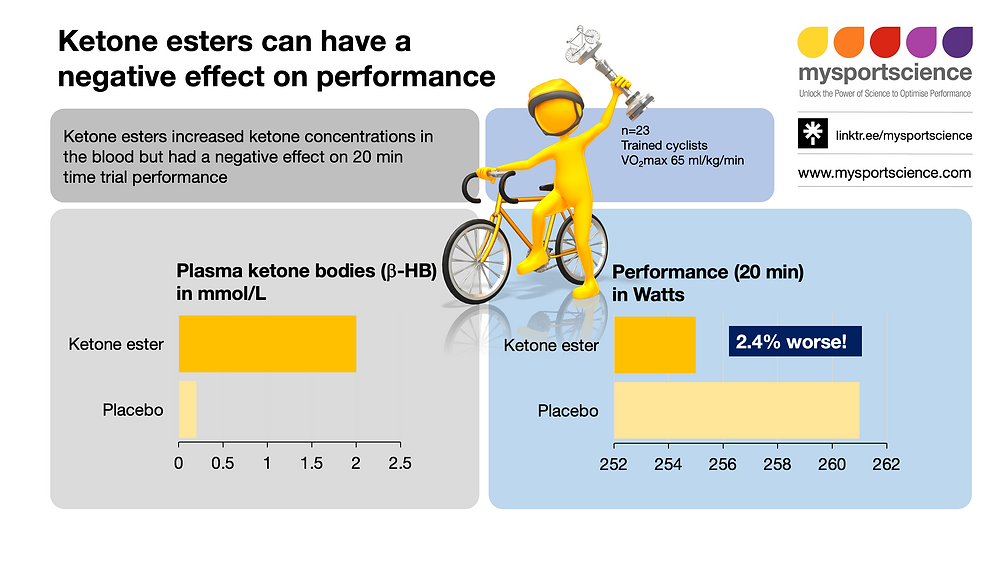Ketone ester supplements have garnered considerable attention within the endurance community due to their potential to enhance performance through rapid ketosis—elevated blood ketone levels—without necessitating a strict ketogenic diet. While the allure of these supplements stems from their promise of improved endurance, the scientific understanding of their effects remains incomplete. As athletes prepare for and engage in long-duration events, it is crucial to consider how ketone supplementation, among other factors, interacts with performance optimization.
A pivotal study in 2016 suggested that ketone monoesters could improve performance, reporting a modest but noteworthy ~2% increase in cycling time-trial results following consumption before exercise. This sparked a wave of research aiming to validate or refute these claims across varied athletic contexts. The ensuing investigations revealed inconsistent findings, with a few studies even indicating that ketone supplementation may impair endurance performance. This disparity leads to speculation about why some athletes experience enhancements while others do not. Variability in individual responses might be influenced by factors such as body composition, metabolic adaptation, and even the specific type of ketone ingested.
Recent studies have shone light on two critical components that can affect the outcomes of ketone supplementation: the type of supplement and the dosage administered. The latest research from McMaster University focused on ketone monoesters, which are generally regarded as having a favorable performance-enhancing profile when ingested in appropriate quantities. The study employed a carefully standardized protocol in which trained cyclists consumed either the ketone supplement or a placebo, allowing a 30-minute digestion period before engaging in a 20-minute time-trial on a cycle ergometer. This time-trial serves as a practical measure of functional threshold power, relevant for assessing performance metrics in endurance events.
Interestingly, this investigation reported an average performance decline of ~2% when athletes ingested the ketone monoester, indicating that the placebo group performed better on the trial day. While earlier studies posited potential enhancements from these supplements, the inability to replicate such results consistently raises questions regarding their efficacy. Factors such as gut tolerance are also pertinent; gastrointestinal discomfort can significantly impede athletic performance, and the study observed low instance of adverse digestive symptoms among participants. This suggests that the careful selection of supplement types and understanding how they interact with individual tolerances is essential for athletes evaluating their utility.
The underlying mechanisms by which ketone supplementation may affect performance are still being explored. For example, it has been suggested that blood acid-base balance may be disrupted, a phenomenon linked to performance variability in prior research. Some athletes may experience an increased perception of effort and elevated heart rates, potentially diminishing their overall performance capacity during high-intensity efforts. These physiological responses underscore the complexity of integrating new supplements into established training and fueling strategies.
Moreover, the nature of the exercise itself matters. Although the study highlighted negative impacts on short-duration, high-intensity cycling tests, it does not eliminate the possibility that ketone supplementation might yield benefits during lower-intensity, prolonged events. As many endurance athletes often tailor their training and racing strategies to optimize different energy systems at various intensities, further research could delineate how these supplements interact with such nuanced demands.
Timing also plays an essential role in the effectiveness of ketone supplementation. Emerging evidence suggests that consuming ketones post-exercise could facilitate recovery and improve training adaptations. During recovery, the focus shifts toward cellular repair and energy replenishment. Therefore, athletes might find more value in using ketone supplements after intense sessions or marathons, potentially enhancing recovery processes or metabolic flexibility.
Nutrition timing, especially during extended events, is another area where athletes must carefully consider their strategies. Hydration and fueling strategies will vary based on conditions, duration, and individual tolerances. While some may prioritize carbohydrate-rich sources for immediate energy, others could experiment with ketone-based supplements to gauge their effectiveness across varying workloads. Balancing carbohydrate intake with ketone use could also be explored further, as fuel preferences may evolve depending on the event’s intensity and duration, guiding athletes in optimizing their nutrients for specific performance needs.
In racing scenarios—particularly those involving harsh environmental conditions—the consideration of metabolic efficiency is paramount. Athletes need to assess how various fuelling strategies, including ketone supplementation, align with their specific metabolic profiles. Individual response to fuel sources may vary widely based on previous adaptations, making personal experimentation crucial.
For endurance athletes looking to integrate insights from the current research, a practical takeaway would be to critically examine the effects of ketone supplementation in relation to both performance and recovery. Engaging in controlled trials during training could provide insights into personal responsiveness, allowing athletes to adopt a more systematic approach in applying these supplements. Monitoring performance metrics and perceived exertion during these trials will further aid in developing an informed strategy that accommodates their unique metabolic characteristics and fueling needs.
